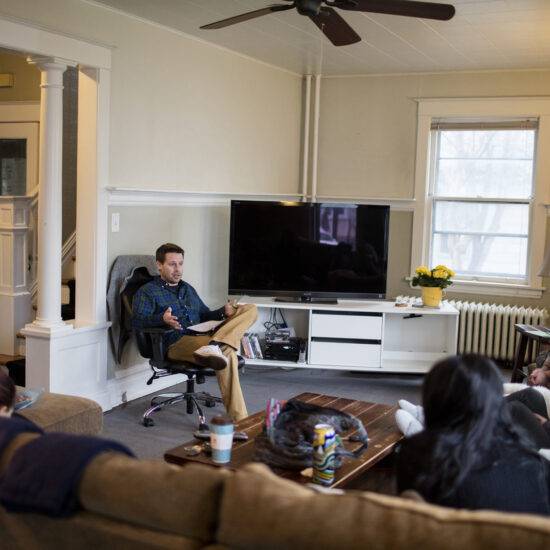Recovery from addiction is a complex and multifaceted journey, one that extends far beyond the confines of clinical treatment. It demands a nurturing and supportive environment that fosters healing, growth, and sustained sobriety.
Among the diverse strategies and interventions available, the role of a recovery residence stands out as indispensable.
Serving as a bedrock of the recovery process, these residences provide individuals with a haven where they can navigate the challenges of addiction recovery with structure, support, and camaraderie.
In this complete guide, we examined what is a recovery residence.
From understanding their fundamental nature to pointing out their key role in addiction recovery, we shed light on why these havens of sobriety are essential for individuals pursuing to rebuild their lives after addiction.
Understanding What is a Recovery Residence
Before getting into why recovery residences are important, it’s essential to understand what is a recovery residence.
A recovery residence, also known as a sober living home or halfway house, is a supportive living environment designed to provide individuals in recovery from substance abuse with a safe and structured place to reside.
These residences offer a supportive community of peers also committed to sobriety and access to resources and services aimed at promoting long-term recovery.
The Role of a Recovery Residence in Addiction Recovery
Recovery residences play a multifaceted role in supporting individuals on their journey to sobriety.
Firstly, they offer a stable, substance-free living environment, free from the triggers and temptations that may have existed in the individual’s previous living situation.
This supporting setting provides a crucial buffer during the early stages of recovery when individuals may be most vulnerable to relapse.
Additionally, recovery residences foster a sense of community and belonging among residents.
Peer support is a cornerstone of recovery, and living alongside others who share similar experiences can provide valuable encouragement, understanding, and accountability.
Residents often participate in group activities, meetings, and peer-led support groups, further strengthening their support network and sense of camaraderie.
Moreover, recovery residences typically enforce house rules and guidelines to promote sobriety and personal responsibility.
Residents are expected to adhere to curfews, participate in household chores and responsibilities, and maintain sobriety.
These expectations help instill discipline and structure in residents’ lives, which can be instrumental in maintaining their recovery journey.
Why is a Recovery Residence Important?
- Structured Support: Recovery residences provide a structured, supportive environment reinforcing sobriety and accountability, helping individuals navigate early recovery challenges.
- Transition from Treatment: These residences act as a bridge between treatment and independent living, offering a gradual transition with ongoing support.
- Peer Support: Residents benefit from the camaraderie and understanding of peers facing similar challenges, creating a supportive community.
- Accountability: House rules and expectations promote personal responsibility, motivating residents to stay committed to their recovery goals.
- Safe Environment: Recovery residences offer a sober living environment, reducing the risk of relapse by removing individuals from substance-prevalent settings.
- Access to Resources: Many residences provide counseling, support groups, vocational training, educational opportunities, and access to community resources.
- Long-Term Success: Research indicates that individuals in recovery residences have higher long-term sobriety rates compared to those who return directly to their previous environments.
Who Can Benefit From a Recovery Residence?
While not suitable for everyone, a recovery residence can be highly beneficial for individuals who:
- Have completed a detox or inpatient treatment program and require ongoing support.
- Face challenges in maintaining sobriety in their current living environment.
- Lack of a strong support system at home.
- Would benefit from a structured and accountable environment to build life skills.
- Feel isolated or alone in their path of recovery.
What to Look for in a Recovery Residence
When considering a recovery residence, it’s essential to look for certain qualities and characteristics to ensure it meet your needs and aligns with your recovery goals. Some factors to consider include:
- Accreditation and Licensing: Choose a licensed, accredited recovery residence to ensure it meets care standards and ethical guidelines.
- Staff Qualifications: Ensure staff have experience and training in addiction recovery and evidence-based practices.
- Program Structure: Look for a residence with a comprehensive recovery approach, including support groups, life skills training, counseling, and recreational activities.
- House Rules: Review rules on sobriety, curfews, chores, and community involvement to ensure they match your recovery goals.
- Cost and Insurance: Understand the cost, insurance acceptance, and financial assistance options, including what services and amenities are included.
- Location and Amenities: Consider the residence’s location, access to support services, employment opportunities, and available amenities like transportation and healthcare access.
FAQs
1. What is a recovery residence, and how does it differ from other treatment settings?
A recovery residence, also known as a sober living home or halfway house, is a supportive living environment designed to provide individuals in recovery from substance abuse with a safe and structured place to reside. Unlike inpatient treatment settings, recovery residences offer a less restrictive environment while still providing essential support and resources for maintaining sobriety.
2. Who can benefit from residing in a recovery residence?
Recovery residences can be beneficial for individuals who have completed a detox or inpatient treatment program and require ongoing support, struggle with maintaining sobriety in their current living environment, lack a strong support system at home, and would benefit from a structured and accountable environment to build life skills, or feel isolated or alone in their recovery journey.
3. What are the key components of a recovery residence program?
A recovery residence program typically includes structured living and accountability through adherence to house rules and guidelines, peer support through communal living and group activities, development of life skills through workshops and programs, transitional support to gradually reintegrate individuals into independent living, and access to resources and services aimed at supporting long-term recovery.
4. How do recovery residences help reduce the risk of relapse?
Recovery residences offer a secure, substance-free environment that encourages a life of sobriety. The structured living and accountability enforced within the residence help residents stay committed to their recovery goals, while the peer support and communal living foster a sense of belonging and connection, reducing feelings of isolation and loneliness that can contribute to relapse.
5. What should I look for when considering a recovery residence?
When considering a recovery residence, it’s essential to look for factors such as accreditation and licensing, staff qualifications, program structure, house rules and expectations, cost and insurance coverage, and location and amenities. Ensuring that the residence meets specific standards of care and aligns with your recovery goals can help set you up for success in your recovery journey.
Conclusion
In conclusion, a recovery residence serves as a vital component of the addiction recovery process, offering individuals a supportive and structured environment to rebuild their lives after addiction. By providing structured support, fostering peer connections, promoting accountability, and offering access to resources, recovery residences empower individuals to embark on sustained sobriety and personal growth. If you or a loved one are considering entering recovery, exploring the option of a recovery residence may be a crucial step toward achieving long-term success and wellness.
Here at B Houses, we offer a comprehensive recovery residence program designed to meet each individual’s unique needs the unique needs of each individual. We understand the challenges of addiction recovery, and our dedicated team is here to provide the support and guidance you need to achieve lasting sobriety. Contact B Houses today to learn more about our program and begin your journey toward a brighter future.










